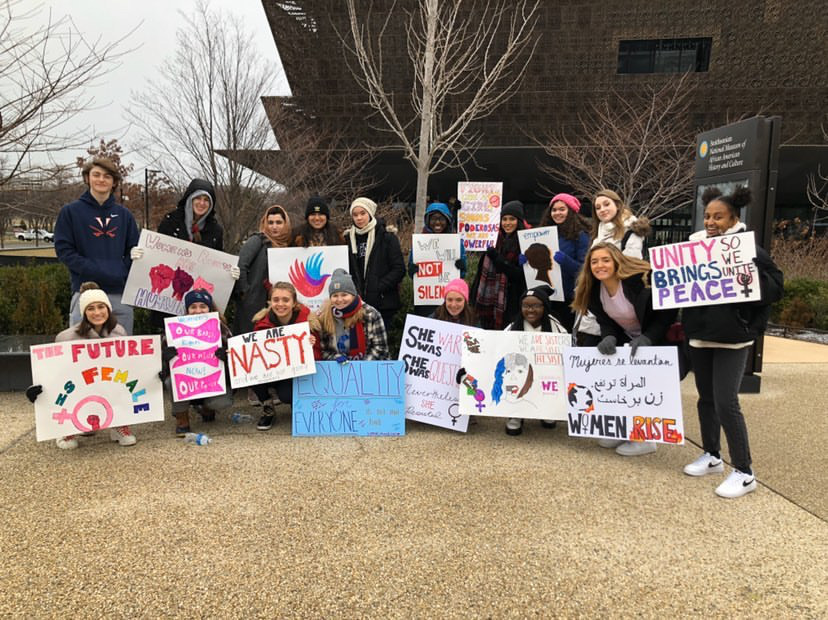Students’ Opinions on Annual Protest
Moira Sirois and Katie Vastola
This year marks the fourth annual women’s march, January 18, 2020. The women’s march started in 2017, at the time of Trump’s inauguration.
This year’s march was sophomore Anna Windmuller’s second. Her first was in 2017. She went this year because she wanted to see if people still had the same attitude on feminist activism.
She felt that this year, it was quieter and there were fewer people than there were in 2017. She was a little disappointed because it seemed like people were less enthusiastic about it and it wasn’t as big of a thing as it was three years ago.
She attributes this to the fact that the Women’s March is not new anymore.
“When the women’s march first started, it was a new thing and people were really angry; but now people know what is happening and it is not a new movement but they were still making up chants,” said Windmuller.
Windmuller thinks marches like this can create meaningful change.
“[These marches] are beneficial because if the president sees us protesting and we get recognition in the news, maybe that will start to change things,” she said.“I do feel that my voice was being taken into consideration by other people, but not by as many people as we need. We are getting recognition across the world, but we have yet to change the minds of some people.”
Reesey duPont, a junior, has also been to every march since 2017. She is the co-president of the Girl Up club at T.C., which is a chapter of Girl Up, an organization founded by the United Nations to help and empower girls in underdeveloped countries. duPont went with members of the club for the second year.
“I think marches like these and protesting in general demonstrates the power of collective voices and how unifying this experience is,” said duPont.
Every march has its own issue that they focus on and this one was predominantly on immigration and the political tension with the upcoming election.
“It also served as a tribute to Dr. Martin Luther King because his birthday was only a few days later,” said duPont. “Opportunities like these help to bring us together to fight for the same issues; much like how gender equality means equality for all women, regardless of race, ethnicity, class, etc.”
“I feel like it is good to support women’s rights and also to become active and to express your opinion,” said Josh Collins, a junior, who went with the T.C. Girl Up club.“There were no guys, but I understand that teen boys would not have too much of an interest participating in an event like this but I personally found it very fun.”.
Collins found the march “extremely loud, but everyone was so enthusiastic.”
“They started singing songs and I happily danced along with the tunes. I had so much fun participating and would like to attend other marches,” he said.



